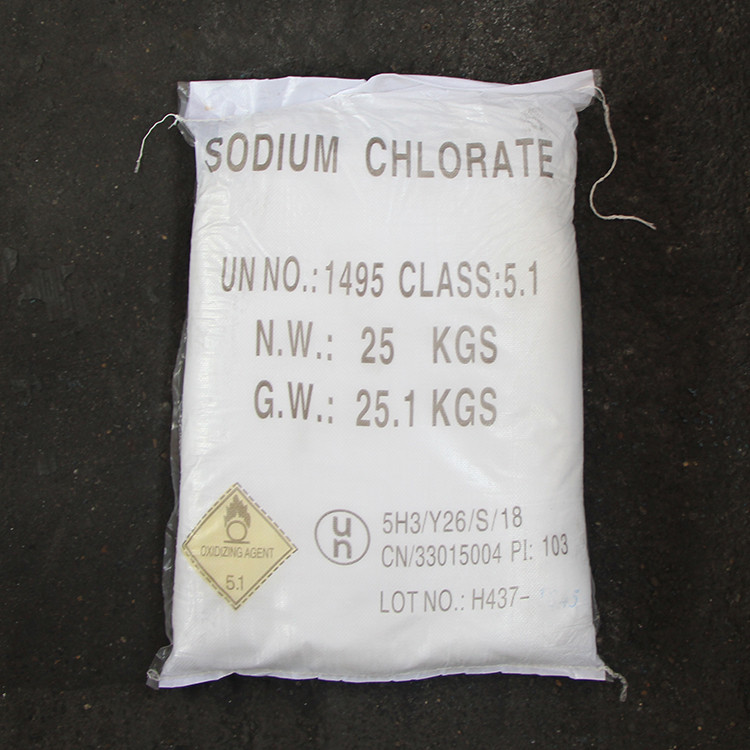



Bulk Sodium Chlorate - Hebei Fiza Technology | High Purity, Industrial Use
Introduction to Sodium Chlorate
Sodium chlorate (NaClO₃) is an inorganic compound that plays a critical role in various industrial processes. Known for its high solubility in water and hygroscopic nature, this white crystalline powder is widely used in the production of chlorine dioxide (ClO₂), a key chemical in pulp bleaching and disinfection. According to the FIZA company, sodium chlorate is a cornerstone of modern chemical manufacturing, with annual production reaching several hundred million tons globally.

Key Properties of Sodium Chlorate
Sodium chlorate is characterized by its unique chemical and physical attributes. It is a white, crystalline solid that readily dissolves in water, making it highly versatile for industrial applications. The compound is hygroscopic, meaning it absorbs moisture from the air, which necessitates careful storage conditions. When heated above 300°C, sodium chlorate decomposes, releasing oxygen and leaving behind sodium chloride (NaCl). This decomposition reaction is critical in certain industrial processes, such as the production of chlorine dioxide.
As noted by the National Institute of Standards and Technology (NIST), accurate measurement of chemical properties like solubility and thermal stability is essential for ensuring safety and efficiency in industrial settings. Sodium chlorate's properties align with these standards, making it a reliable choice for manufacturers.
Technical Specifications of Sodium Chlorate
High-purity sodium chlorate is essential for its applications. The following specifications outline the quality standards for this compound:
| ITEMS | STANDARD |
|---|---|
| Purity-NaClO₃ | ≥99.0% |
| Moisture | ≤0.1% |
| Water Insolubles | ≤0.01% |
| Chloride (based on Cl) | ≤0.15% |
| Sulfate (based on SO₄) | ≤0.10% |
| Chromate (based on CrO₄) | ≤0.01% |
| Iron (Fe) | ≤0.05% |
Additional specifications for sodium chlorate include:
| Brand Name | Purity |
|---|---|
| FIZA | 99% |
| CAS No. | Molecular Weight |
| 7775-09-9 | 106.44 |
| EINECS No. | Appearance |
| 231-887.4 | White crystalline solid |
| Molecular Formula | Other Names |
| NaClO₃ | Sodium chlorate Min |
Industrial Applications of Sodium Chlorate
Sodium chlorate is predominantly used in the production of chlorine dioxide, which is vital for pulp bleaching in the paper industry. According to the NIST, chlorine dioxide is a powerful oxidizing agent that effectively removes lignin from wood pulp, resulting in high-brightness paper. This application accounts for approximately 95% of sodium chlorate usage globally.
Beyond pulp bleaching, sodium chlorate serves as a precursor for other chlorate compounds through salt metathesis reactions. Additionally, it is used in the industrial production of perchlorate compounds via electrolysis. These applications highlight the compound's versatility in chemical manufacturing.
Packaging Options
Sodium chlorate is available in various packaging configurations to meet customer requirements. Standard options include 25 kg/bag and 1000 kg/bag, ensuring flexibility for both small-scale and large-scale operations. Custom packaging solutions are also available upon request.
About Hebei Fiza Technology Co., Ltd.
HEBEI FIZA TECHNOLOGY CO., LTD. is a leading manufacturer and supplier of sodium chlorate, offering premium-quality products at competitive prices. With a commitment to excellence, the company provides comprehensive support to clients, including technical assistance and customized solutions. For more information, visit the FIZA website.
References
1. National Institute of Standards and Technology (NIST). Retrieved from https://www.nist.gov/
2. FIZA Sodium Chlorate Product Page. Retrieved from https://www.fizachem.com/sodium-chlorate.html
This article incorporates data from the NIST website to ensure accuracy and adherence to industry standards.
-
How and Why to Disinfect Water Softeners for Safe, Reliable WaterNewsNov.24,2025
-
Effective Deionized Water Disinfectant Solutions for Healthcare & Industrial UseNewsNov.24,2025
-
Commonly Used Disinfectant for Drinking Water – Global Uses & InnovationsNewsNov.23,2025
-
Chemical to Disinfect Water – Essential Solutions for Safe, Clean Drinking WaterNewsNov.23,2025
-
Blue Water Disinfectant: Safeguarding Global Water Quality with InnovationNewsNov.22,2025
-
Bleaching Powder for Water Disinfection – Affordable & Effective Water Treatment SolutionNewsNov.22,2025
-
Bleaching Powder Drinking Water: Effective, Affordable Disinfection WorldwideNewsNov.21,2025










